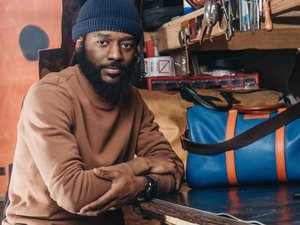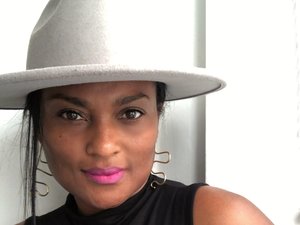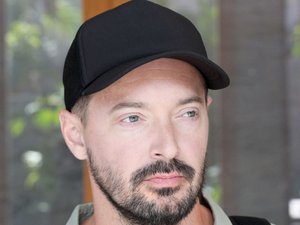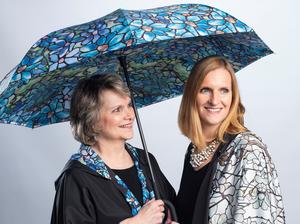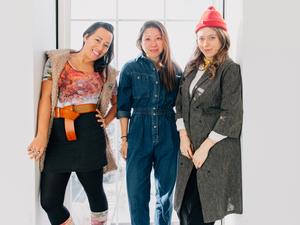
Six years after launching her business in Philadelphia, Silvia Roldan is eyeing ways to expand hat and accessories brand Yaku Wear to further showcase goods from her native Ecuador. In addition to expanding product offerings, Roldan is also seeking new retail partnerships and a brick-and-mortar space to share with a cohort of fellow area transplants who are also showcasing the wares of their home countries.
A founding member of the Global Craft Market, which was established through the Welcoming Center in Philadelphia, a nonprofit focused on economic growth for immigrants, Roldan and a group of roughly a dozen micro importers from around the globe are in the process of searching for a shared storefront space. There, as they do now at markets and through the center, the goal is to sell products from each of their homelands including El Salvador, Bolivia, Mexico, Syria, and Nigeria. In doing so, they hope they can leverage their unique customer base to expand one another’s business.
“We share the same passions to share our culture,” Roldan said. “We need that representation in this city.”
Now in its preliminary stages, Roldan said they are looking in South Philadelphia and hope to have something locked in by the end of the year. The shop will go under a different name than the Global Craft Market, which is an incubator.
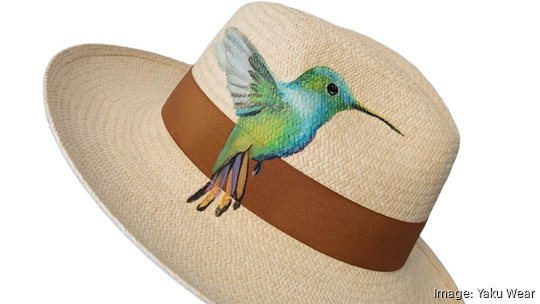
Roldan is no stranger to business. She earned her degree in business administration and tourism while in Ecuador and worked with the country’s ministry of tourism to help others launch their businesses. It was during her studies she met her husband, an American, and in 2014, the pair moved to Philadelphia.
In 2017 on a trip back to Ecuador, the idea for Yaku Wear was born. There she showed her husband aspects of the country he didn’t know about, like the tradition of straw hat making. Despite its name, the popular Panama hat actually originated in Ecuador, where it is known as a toquilla hat. Made from fibers from palm trees, the traditional weaving was added to the United Nations Educational, Scientific and Cultural Organization, or UNESCO, Representative List of the Intangible Cultural Heritage of Humanity in 2012. Still, the misnomer persists.
As Roldan explained this to her husband, she was struck by an idea to create a business around it. When they returned to Philadelphia, she launched Yaku Wear and entered the market later that same year. Roldan began with hats and today sells numerous styles including the traditional toquilla hat, a fedora, a Redondo, and even straw beret-style hats. They come in a range of colors and retail, on average, for $70 to $85. Among her best sellers is what she’s called the Japon Combinado, a brimmed straw hat.
Submit a nomination for the 2023 Fire Awards
Each hat is handmade in Ecuador by a collective of artisans, many of them women. The simplest style can take between one and two weeks to make, while more complex hats can take much longer.
“It’s a piece of art,” Roldan said of the process and the finished product.
Roldan – whose full-time job is as a paraprofessional in a bilingual Philadelphia high school – then imports the hats which she sells via e-commerce, a small selection of retail partnerships including the Artesania Mundo de Queen and the Windfall Gallery, both in Philadelphia, and at local markets like at Cherry Street Pier and Spruce Street Harbor Park.
When she launched, Roldan targeted golfers who would need protection while playing in the sun, but her demographic has since expanded to also focus on millennials.
With her customer base established, she’s now looking to expand retail offerings, something she has done progressively over the past six years. Shortly after launching, she introduced Ecuadorian handmade silver filigree jewelry and later cotton and wool shawls and scarves known as macanas.
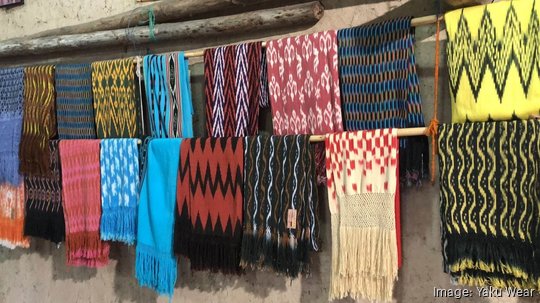
As with the business itself, the name is a nod to her native country, specifically the Quechua language spoken by some of Ecuador’s indigenous people. A born Spanish speaker, Roldan picked up certain Quechua words, including “yaku,” which means water. It was a fitting term, she felt, for the brand since the hats begin with water. The straw is harvested from a palm that requires water to grow, is then boiled to separate the plant’s chlorophyll, and then dried. Because they are made from natural materials, the hats can eventually be recycled or composted or, as Roldon said returned “back to the soil, to the earth.”
She’s now looking to increase her focus on Ecuador’s indigenous people. Like many parts of South America, the forests of Ecuador have experienced deforestation, which is having an adverse impact on the people who live there and rely on the natural resources. Ecuador’s Amazon region – 51.2% of its continental territory is native forest – is home to 14 indigenous nationalities, according to the United Nations. Roldan is now working to bring a selection of handmade indigenous products to Yaku Wear. She expects the focus to be on bags at the start and expand from there.
To grow the brand, Roldan is looking to new retail partners, especially in Chestnut Hill.
As the brand expands, the mission will remain the same: to “tell people the real story about the hat and how they are made,” Roldan said.
